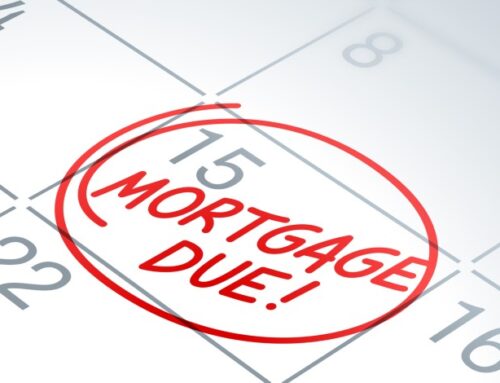A second home in Arizona can mean a lot to you and your family. It can be a place you visit when you want to escape cold climates and appreciate the beautiful weather most of the state offers much of the year. It can be a valuable investment to generate an additional income stream. It’s a place you can call home, even when your primary home is miles away.
In 2022, a study found Arizona was the most popular state for movers over the previous year. If you’re interested in purchasing a home in the Grand Canyon state, learn what to consider when buying a second home.
1. Determine The Reason For Buying A Second Home
A home purchase is one of the biggest investments you can make. First, decide whether purchasing a second home makes sense for you and your family or if staying in other accommodations when you visit Arizona makes more sense.
Some reasons you may want to buy a second home include:
- You spend considerable time in Arizona. You might be a snowbird that flocks to the warmth and sunshine of Arizona in the winter months. Or, maybe you have kids, grandkids or other loved ones living there. If you want your own place to spend time in when you come to visit, your own home may make sense.
- You’re interested in the investment potential. A second home can generate income even when you’re not staying there. You can see from data from the U.S. Department of Housing and Urban Development that average house price sales in the U.S. have increased steadily since 1965 and have grown exponentially since 2020. Like any investment, there’s no guarantee you’ll make a return when you decide to sell a home. Still, a second home can help you diversify your investment portfolio and provide you with a potentially strong asset in the future. Also, when you’re not using the second home, you can rent it to a short-term renter or potentially list it on a home-sharing site.
- You prefer your own space. If you visit Arizona frequently, you may prefer your own space rather than going through the hassle of booking and checking in and out of a hotel each time you visit. Plus, with a second home, you can decorate your surroundings however you like. You don’t have to worry about surging rates due to hotel demand. You can add fixtures, appliances, gadgets, clothes and furniture to your home, so it’s all right there as soon as you arrive. A second home makes it easy to entertain guests, as well.
Financially, a second home could be an immediate money maker or at least provide you with a valuable asset. But there’s also a big commitment with buying a second home, in terms of up-front costs and managing ongoing costs associated with it.
2. Factor In The Costs Associated With Purchasing A Second Home
Like any home purchase, a second home purchase requires additional costs beyond the sticker purchase price. In addition to closing costs to cover the home purchase, there will likely be monthly maintenance costs if you plan to use the home in any way. Consider the following.
Down payment and interest rates
First-time homebuyers have more options in terms of loans and rates. For second homes, there are more restrictions and requirements regarding how much of a down payment you’ll have to pay.
With some mortgages, you may be able to get a home loan as long as you put down just at least 3% of the home’s purchase price in a down payment in Arizona. With a second home, you may be required to put down at least 10% of the home’s purchase price. Some lenders will require up to 15% or 20% for a down payment for a second home.
Also, with a vacation home, you may not qualify for loans like a Federal Housing Administration (FHA) loan. FHA loans are generally restricted to first-time homebuyers.
As for interest rates, those will also likely be slightly higher when you’re purchasing a vacation or second home. You can expect a difference of anywhere from 0.5% to 1% higher interest rates than those offered for primary homes.
As you can see, you’ll need to be financially ready to make a substantial down payment on a second home and typically pay more in mortgage interest. The more you can put down now, the better mortgage terms you can get.
Homeowners insurance
You’ll likely need to add homeowners insurance in Arizona to your monthly expenses with a second home. Although there’s no legal requirement to have homeowners insurance for your home, most lenders will require that you have it to maintain the terms of your mortgage. You’ll need a homeowners insurance policy unless you’re paying for a second home in cash.
A benefit of homeowners insurance is that it helps you protect your second home investment. A standard policy offers dwelling and structure coverage, personal property coverage, personal liability coverage, medical payments for anyone injured on your property and loss of use coverage. For peace of mind and financial protection, homeowners insurance is essential.
Debt-to-income ratio requirements
When lenders consider whether or not to offer a loan to a homebuyer, one crucial factor they’ll evaluate is debt-to-income ratio. This helps a lender understand the risk of lending you money.
If you still have a mortgage on your primary residence, that will factor into your debt-to-income (DTI) ratio. Other expenses, like credit card payments, student loans, and auto loans, will also affect DTI. You’ll also have to factor in homeowners association (HOA) fees with other monthly fees like mortgage and homeowners insurance premium payments for what you’ll owe each month.
You’ll generally need a DTI of 50% or less for a conventional mortgage. Since second-home mortgages may have stricter terms, lenders may require even less DTI when you’re applying for a home loan for a second home.
Property taxes
Another expense is property taxes on a second home in Arizona. Does Arizona charge more property tax for a second home? You might not pay extra taxes for a second home, but how much you pay will depend on your local government.
The Arizona county you live in will determine how much property taxes are to provide residents with various public services. In Arizona, property taxes are charged semi-annually.
This leads to the next point: location. If you want to pay less in property taxes, you’ll want to compare your options among various Arizona counties.
3. Is The Property In An Ideal Location?
Some locations for a second property are better than others, depending on your goals with your second property. Considering the reasons why you might purchase a second home, here’s how those might affect the location for the best place to buy a second home in Arizona.
- You want a second home to be close to family. If this is your reason to buy a second home, you’ll likely be looking in a location that’s close to where your loved ones live. In “The Valley,” which is the Phoenix metro area, you can generally drive from one city to another in around an hour or less, depending on traffic. There are also public transportation options, like a bus system and light rail, that you can hop on.
- You want a second home that’s near amenities. Depending on what you like to do in Arizona, that may influence your desired second home location. For example, living in the Phoenix area gives you access to major sports teams and entertainment. A second home in Tucson offers a nearby getaway to Mexico. If you love skiing or hiking, a second home in northern Arizona, like Flagstaff or Sedona, may make more sense.
- You want to make a smart second home investment. If you want to make money on a second home investment, much of Arizona provides potential. According to Zillow, Arizona home prices in 2023 rose 1.7% year-over-year. Home values will depend on the location but consider: Tucson home values grew 5.2% year-over-year, Flagstaff home values grew 4.9% year-over-year, and Phoenix home values grew 1.9% year-over-year. If you plan on purchasing a second home in a major Arizona city, home value projections show promise.
Another benefit of a second home is that, should you decide not to use it for yourself, you can still use it as a rental for other people. If you discover you’re not a fan of the location for your own family, you can continue to rent it to others and keep it as an investment.
How To Buy A Second Home In Arizona
The process for buying a second home in Arizona is similar to purchasing a first home. Steps include:
- Get prequalified. Get an idea of how much home you can afford by going through the mortgage prequalification process. This doesn’t affect your credit score but can help you create realistic expectations for purchasing a second home.
- Connect with a local real estate agent. Talk with real estate agents in the area you want to purchase. They can help you find listings that fit your budget and needs.
- See homes. Visit homes that fit your buyer’s profile. If you’re interested in a home, get a home inspection and appraisal to determine its true value before you make an offer.
- Make an offer. Use your mortgage terms to make an offer you can afford. Depending on the market, you may choose to make an offer with the intent of negotiating or make a strong offer outright to secure your home.
- Close. Finalize your mortgage, work with a closing agent to complete purchase paperwork and pay your closing costs. Obtain homeowners insurance, and get ready to move in.
Before you start the homebuying process, closely consider your finances and whether the responsibility of owning a second home is one you want to take on. If you’re able to purchase a second home, it can be a great asset that provides you with personal use for your family and a potential money-making investment for the future.
Secure A Mortgage To Finance The Purchase Of Your Second Home
If you’re interested in buying a second home in Arizona, now’s a great time to get a property while home values are heating up in the state. Get prequalified for a mortgage to see what you can afford. Check out mortgage options to determine which type might be the best fit.
Contact a mortgage specialist to get any questions answered so you can start the homebuying process in Arizona.




